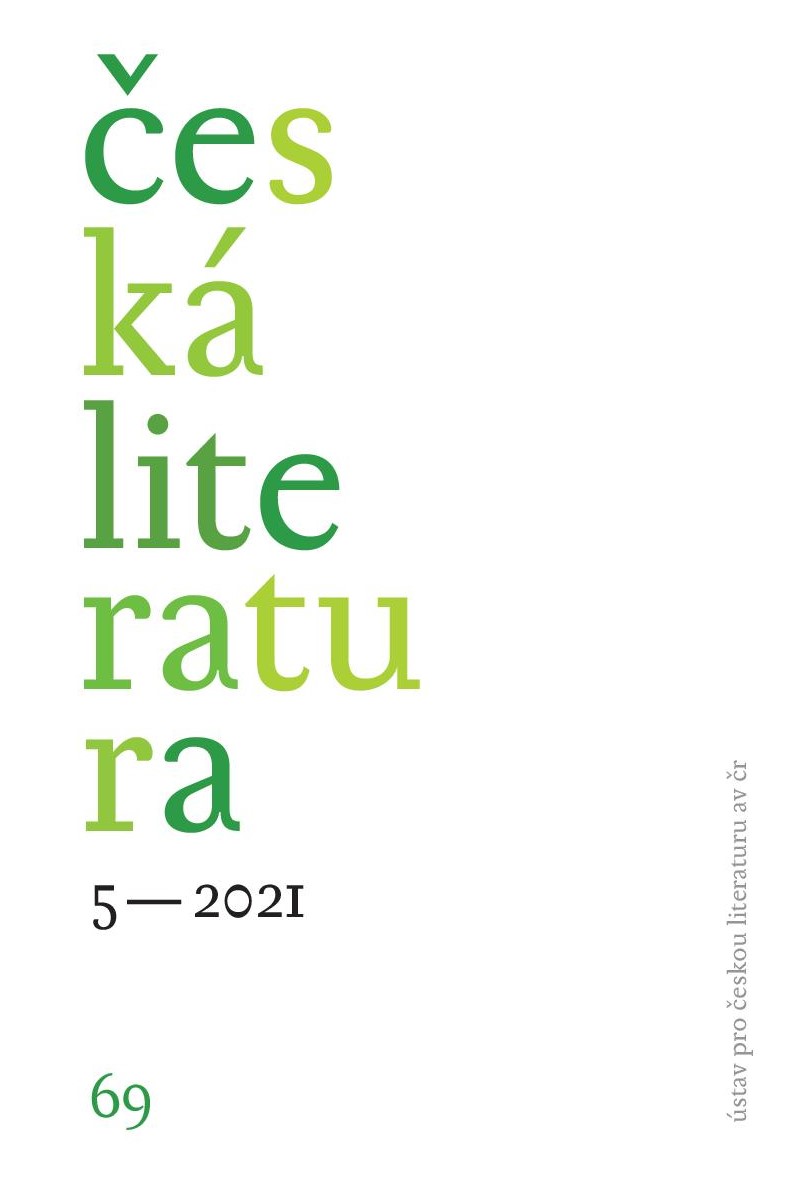Přicházeli vhod i nevhod
They did and did not come in useful:
Vančura and Mukařovský, Vančura and Peroutka
Author(s): Jiří HolýSubject(s): Literary Texts, Czech Literature, Theory of Literature
Published by: AV ČR - Akademie věd České republiky - Ústav pro českou literaturu
Keywords: Vladislav Vančura; Jan Mukařovský; pražský strukturalismus; Ferdinand Peroutka
Summary/Abstract: This article deals with the aesthetic views that Vladislav Vančura formulated in the late 1920s and early 1930s. During this period Vančura continued to share certain principles with the avant-garde. The key attribute of literature turned out to be “poeticity”, “the verbal magic that uplifts and causes sudden shifts in the mind”. Vančura sympathetically followed the emergence of Prague structuralism and its concepts. The dominant role of the aesthetic function in art met his requirement for “poeticity”, while in Vančura’s works the structuralists found suitable material to support their concepts. Jan Mukařovský wrote about Vančura in a positive light not only in the 1930s and 1940s, but also later on, when Vančura’s works found themselves in potential conflict with the demands of “realism” and “the people”. An example of the reverse case, i.e. a fundamental misunderstanding based on different ideas about literature, can be found in the criticism of Vančura’s novel The Last Judgement by Ferdinand Peroutka.
Journal: Česká literatura
- Issue Year: 69/2021
- Issue No: 5
- Page Range: 622-634
- Page Count: 12
- Language: Czech

